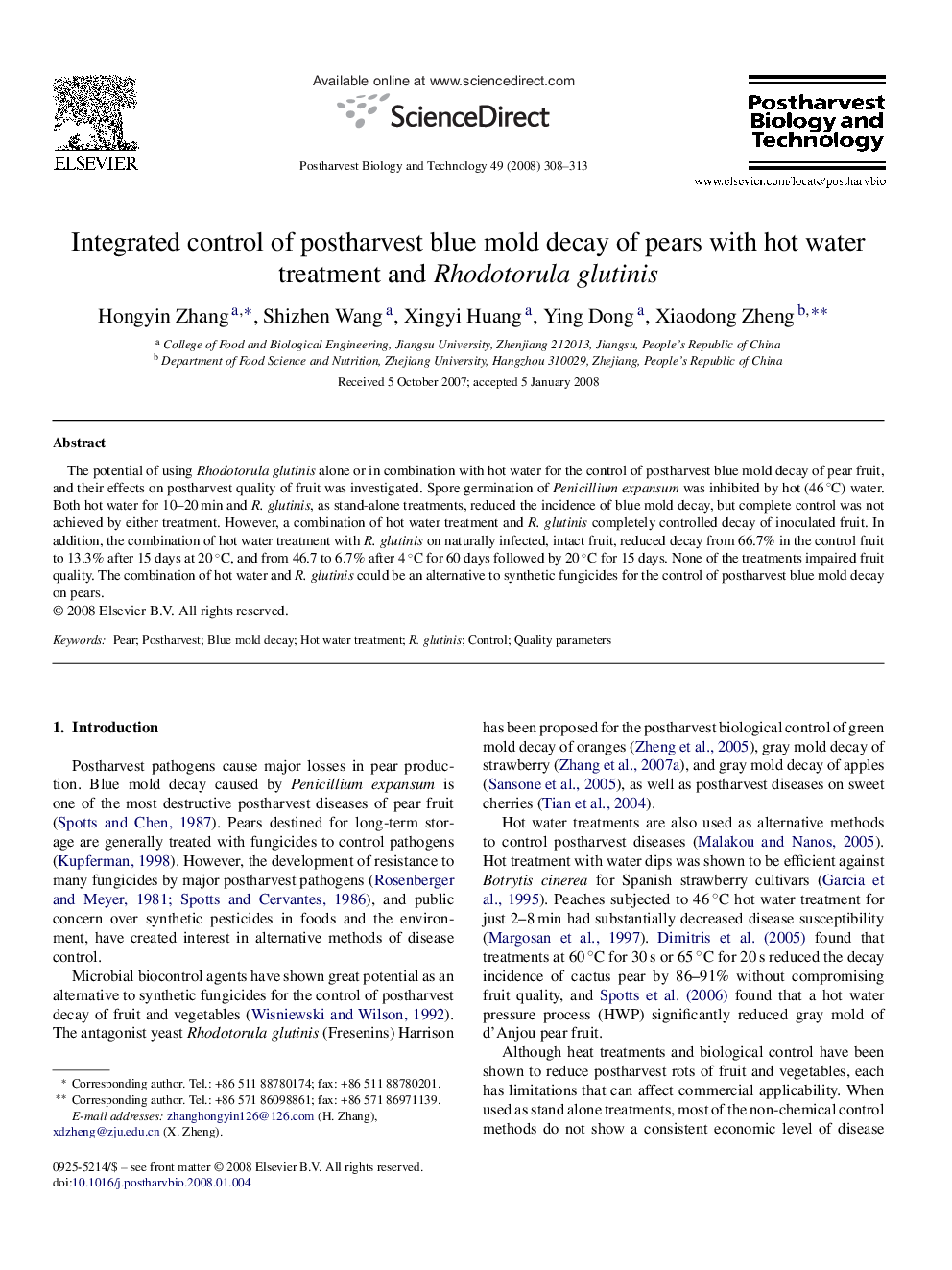| Article ID | Journal | Published Year | Pages | File Type |
|---|---|---|---|---|
| 4519576 | Postharvest Biology and Technology | 2008 | 6 Pages |
The potential of using Rhodotorula glutinis alone or in combination with hot water for the control of postharvest blue mold decay of pear fruit, and their effects on postharvest quality of fruit was investigated. Spore germination of Penicillium expansum was inhibited by hot (46 °C) water. Both hot water for 10–20 min and R. glutinis, as stand-alone treatments, reduced the incidence of blue mold decay, but complete control was not achieved by either treatment. However, a combination of hot water treatment and R. glutinis completely controlled decay of inoculated fruit. In addition, the combination of hot water treatment with R. glutinis on naturally infected, intact fruit, reduced decay from 66.7% in the control fruit to 13.3% after 15 days at 20 °C, and from 46.7 to 6.7% after 4 °C for 60 days followed by 20 °C for 15 days. None of the treatments impaired fruit quality. The combination of hot water and R. glutinis could be an alternative to synthetic fungicides for the control of postharvest blue mold decay on pears.
